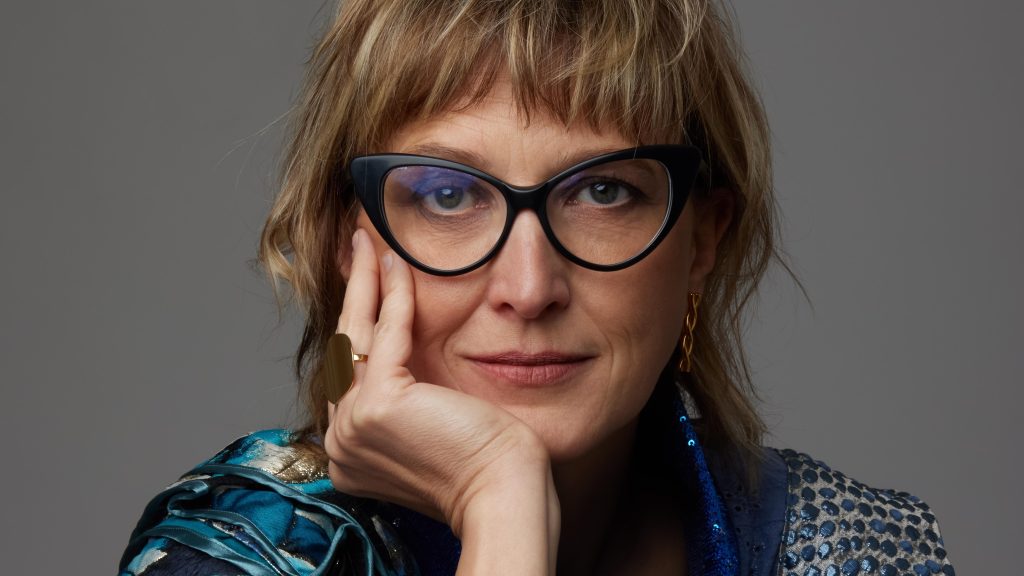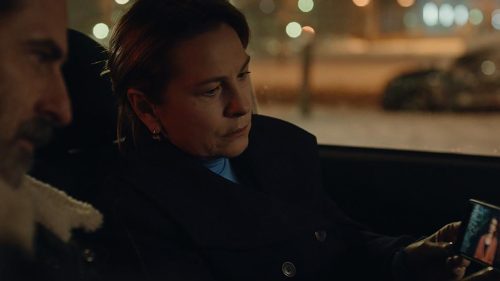
Jasmila Žbanic (Grbavica, Quo vadis, Aida?) is in Venice with the first two episodes of I Know Your Soul, a TV series of which she is the creator, scriptwriter, and co-producer. It tells the story of a prosecutor’s investigation into a suicide that poses a threat to both her family and her career when she realizes that she may not know her son as well as she had thought.
What inspired you to tell this specific story?
Initially, I envisioned the script as a feature film, but an opportunity came to adapt it into a TV series, which allowed for a more in-depth exploration of the main theme and enabled us to shed light on this topic from various perspectives. In other episodes of the series, we also delve into cases involving murders and other complex issues, but the overarching theme remains parenthood.
Why did you choose to adapt the script into a TV series?
Initially, I envisioned the script as a feature film, but an opportunity came to adapt it into a TV series, which allowed for a more in-depth exploration of the main theme and enabled us to shed light on this topic from various perspectives. In other episodes of the series, we also delve into cases involving murders and other complex issues, but the overarching theme remains parenthood.

Created by Jasmila Zbanić e Damir Ibrahimović, the series stars Nevena Murtazić, a prosecutor in the middle of a divorce who is also the mother of a seventeen-year-old, Dino. At Dino’s school, a student commits suicide, and Nevena is assigned the investigation. The case i...
Your films often feature strong and complex female characters grappling with demanding situations. How do you believe these portrayals contribute to the larger discourse on gender in both cinema and society?
In Balkan cinema, almost all female characters were either whores or mothers. Women who were employed or had a job were consistently depicted as bad mothers. This was something I could never relate to, and I believed I had no representation that resonated with me. My own mother and the women I knew were nothing like these portrayals. There were lots of American shows and films that looked at women from another perspective, but when it comes in your own language and from your own country, this can really change the prospective on gender, on women characters and on women real needs.
Grbavica, your feature film about the aftermath of the war in Bosnia-Herzegovina, won the Golden Bear in Berlin. What impact did this recognition have in your own country? Do you believe cinema can contribute to the process of healing and reconciliation in post-conflict societies?
It was a significant moment because Bosnia didn’t have much success during that time; even our football team was performing poorly, and for many people in Bosnia, football is of utmost importance. Then, suddenly, we received this award, and people started to think, “Okay, at least we’re good at something.” People truly embraced the award as their own. What was truly remarkable about it, is that it led to changes in Bosnia’s laws regarding the treatment of women who had been raped during the war. The film centered on these women who had remained silent, not wanting to expose themselves or give interviews. While working with their organization, I asked, “Now that we have media attention, tell me how I can help.” They replied, “We don’t have a law that recognizes us as individual war victims.” Everyone else was receiving recognition, such as those who were physically wounded or those who had lost their parents, but these women had no official status in our society. So, we worked to change the law. As a result of the film, they are now recognized as civilian war victims and receive financial support from the government..